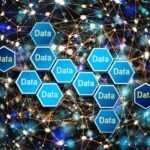The term refers to an information officer who holds a science degree and may be qualified in the administration of scientific literature. This individual should be capable of evaluating the information gathered and performing advisory functions.
A highly competent or knowledgeable person in this role focuses on the creation, use, and management of information, emphasizing the processes of acquiring, organizing, storing, and retrieving information rather than the content itself. This position is sometimes referred to as a documentalist.
The term information scientist has been mentioned many times in various places in the literature. Whenever the subject of information science is presented, the word information scientist comes up in the discussion, and it is natural to wonder who we should call an information scientist. Hopefully, the following definition will answer the question. Below is Eugene Garfield’s definition:
The information scientist may be known by various titles, editors, research directors, or literature scientists. All are quickly coming to the realization, however, that they are intimately concerned with information handling at one or more points in the information processing circle. Every scientist is a creator, disseminator, consumer, evaluator, retriever, shorter, or collector of information. To be an effective and efficient scientist today means, ipso facto, to be an efficient information handler or, at least, an ardent consumer of information in all its forms, published or otherwise.

Information scientists play a pivotal role in various industries, wielding their expertise in data management, information systems, and cutting-edge technology to drive innovation and efficiency. Their skills are in high demand across a multitude of sectors.
Here are some of the key environments where information scientists thrive:
1. Technology & IT Companies
– Software Development Firms: Crafting intricate software solutions and harnessing data to enhance user experiences.
– Data Analytics Companies: Transforming raw data into actionable insights that empower businesses to make informed decisions.
– Cloud Computing & Cybersecurity Firms: Securing digital landscapes while optimizing data storage and accessibility on a global scale.
2. Healthcare & Medical Institutions
– Hospitals and Medical Research Centers: Streamlining patient data management and advancing medical research through innovative data strategies.
– Health Informatics & Electronic Health Record (EHR) Management: Revolutionizing patient care by ensuring seamless access to vital health information.
3. Libraries & Academic Institutions
– University Libraries and Research Centers: Preserving knowledge and fostering academic growth through expert management of information resources.
– Digital Archives & Knowledge Management: Creating comprehensive digital repositories that ensure the accessibility and preservation of invaluable research materials.
4. Government & Public Sector
– National Archives and Record-Keeping Agencies: Safeguarding the historical documents and records essential to national memory and accountability.
– Public Policy and Intelligence Agencies: Analyzing vast amounts of data to inform policies that shape societies and ensure national security.
5. Financial Services & Banking
– Risk Assessment and Fraud Detection: Employing sophisticated algorithms to identify and mitigate financial risks while protecting assets.
– Financial Data Analytics: Deciphering complex financial data to uncover trends and inform strategic business decisions.
6. Corporate & Business Sector
– Business Intelligence & Data Analytics: Utilizing data to unveil insights that drive productivity and competitive advantage in the marketplace.
– Knowledge Management & Competitive Intelligence: Cultivating a culture of learning and adaptation to stay ahead of market trends and innovations.
7. Media & Publishing
– Digital Content Management and Archiving: Curating and safeguarding a wealth of digital content to ensure it remains accessible for future generations.
– News Agencies and Online Media Platforms: Integrating data-driven strategies to enhance storytelling and audience engagement.
8. Scientific Research & Development
– Research Institutions and Think Tanks: Driving forward-thinking investigations and collaborative efforts that push the boundaries of knowledge.
– Artificial Intelligence (AI) and Machine Learning (ML) Applications: Pioneering new frontiers in technology by applying advanced data analytics to create intelligent systems.
In these dynamic environments, information scientists are not just data handlers; they are essential architects of a future that is increasingly driven by data and informed decision-making.
An Information Scientist is a specialist devoted to the art and science of managing, analyzing, and organizing data and information systems with finesse. Their expertise lies in harnessing cutting-edge technology to revolutionize the way information is stored, accessed, and utilized across diverse industries.
Below are the pivotal responsibilities that define an information scientist’s role:
1. Data Management & Analysis
– Harnessing Insights: Skillfully collect, store, and arrange vast, intricate datasets that tell compelling stories.
– Data Whisperer: Utilize advanced analytics and machine learning techniques to extract profound insights and reveal hidden patterns.
– Guardians of Integrity: Ensure the utmost accuracy, integrity, and security of data to maintain the trust of users and stakeholders.
2. Information Systems & Technology
– Architects of Knowledge: Design and oversee databases and innovative information retrieval systems that facilitate seamless access to vital data.
– Digital Preservationists: Implement state-of-the-art digital archiving and document management solutions that safeguard knowledge for future generations.
– AI Innovators: Collaborate with artificial intelligence technology to enhance and streamline the processing of information in exciting new ways.
3. Knowledge Management
– Content Curators: Meticulously organize and classify digital content to ensure effortless access and retrieval for users in search of information.
– Facilitators of Wisdom: Establish systems that foster knowledge-sharing within organizations, cultivating a culture of continuous learning and collaboration.
– Digital Librarians: Manage research repositories and digital libraries, making valuable resources easily accessible for researchers and learners alike.
4. Research & Innovation
– Pioneers of Progress: Conduct groundbreaking research on emerging information technologies that promise to reshape the future.
– Master Organizers: Develop innovative methods for data organization and retrieval, tailoring solutions to meet the unique needs of various sectors.
– Big Data Trailblazers: Apply cutting-edge big data techniques across fields like healthcare, business, and education to drive meaningful change.
5. Cybersecurity & Data Protection
– Defenders of Data: Vigilantly protect information from cyber threats and unauthorized incursions, ensuring a secure digital environment.
– Policy Architects: Develop robust encryption and data protection policies that fortify organizations against potential breaches.
– Regulatory Compliant: Ensure strict adherence to information privacy regulations, safeguarding the rights and information of individuals.
6. Digital Transformation & IT Consulting
– Change Agents: Guide businesses through the adoption of transformative digital solutions that streamline information management processes.
– Infrastructure Enhancers: Optimize IT infrastructure for superior data processing capabilities that boost organizational efficiency.
– Trusted Advisors: Provide insights on best practices for effective information governance, helping organizations thrive in the digital age.
7. User Experience & Information Accessibility
– Search Experience Designers: Innovate search algorithms and enhance information retrieval efficiency, ensuring users find what they need effortlessly.
– User-Centric Creators: Design intuitive, user-friendly digital platforms that put information access at the forefront of user experience.
– Champions of Inclusivity: Advocate for inclusivity in information systems, ensuring that all individuals, regardless of ability, can access essential resources.
Information scientists work across diverse sectors, including technology, healthcare, business, and academia, specializing in data management, digital archiving, cybersecurity, and knowledge organization to ensure efficient information access and security.



